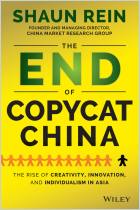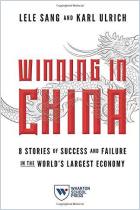
Read or listen offline
Amazon KindleRecommendation
The founders of Meituan and Weibo imitated American products Groupon and Twitter, respectively, when they first started out, but have since moved beyond those models. These days, Facebook and Apple are incorporating elements of Chinese messenger app WeChat. Other Western tech companies are looking to China for inspiration for bike-sharing businesses, photo editing apps, consumer drones, and more. In her blog Business and Life, finance reporter Zhu Xiaopei explores China’s move from being the country of copycats to being a leader in innovation. getAbstract recommends this article to those who still view China as the “knock-off nation.”
Summary
About the Author
Zhu Xiaopei is a blogger and senior financial reporter at Business World and a columnist at Investorscn.com. She independently runs the blog Business and Life.



















Comment on this summary or Comenzar discusión